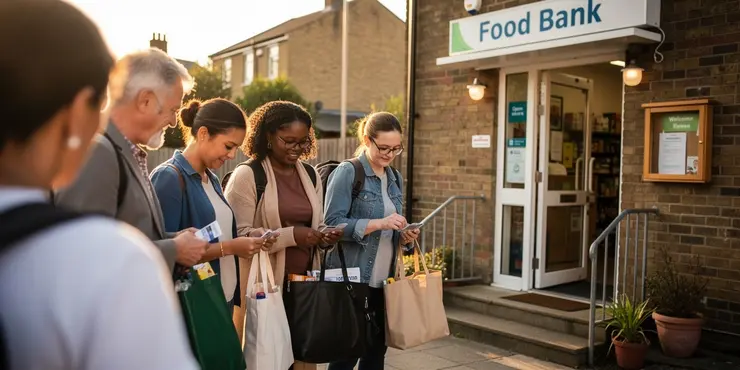
Find Help
More Items From Ergsy search
-
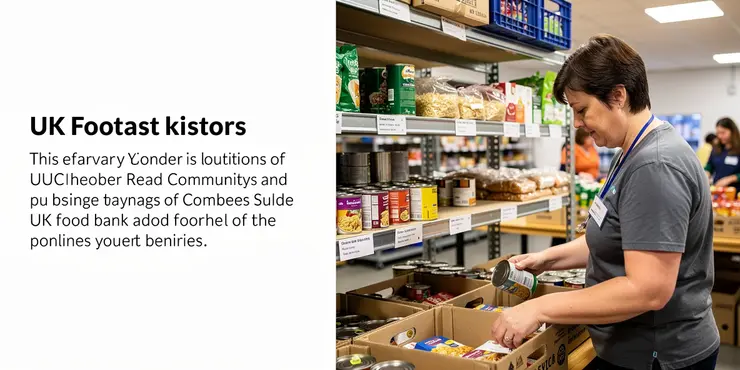
How do food banks get their food?
Relevance: 100%
-
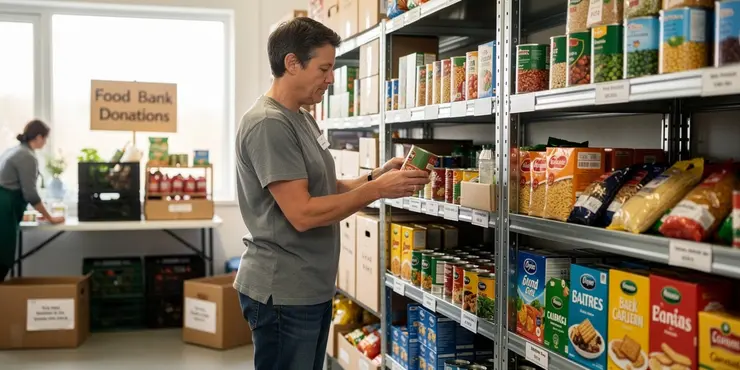
What is a food bank?
Relevance: 100%
-
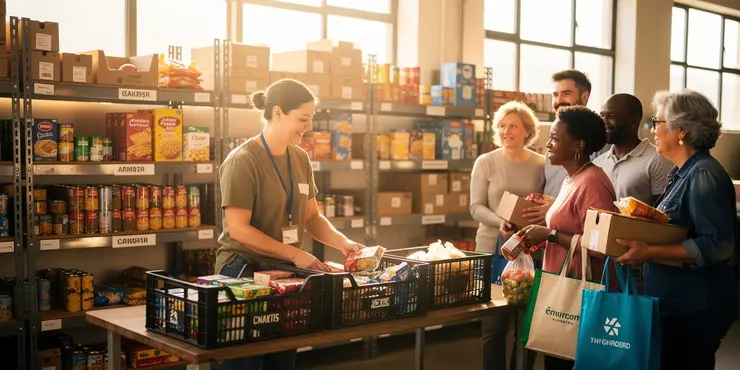
Is there a cost to receive food from a food bank?
Relevance: 97%
-
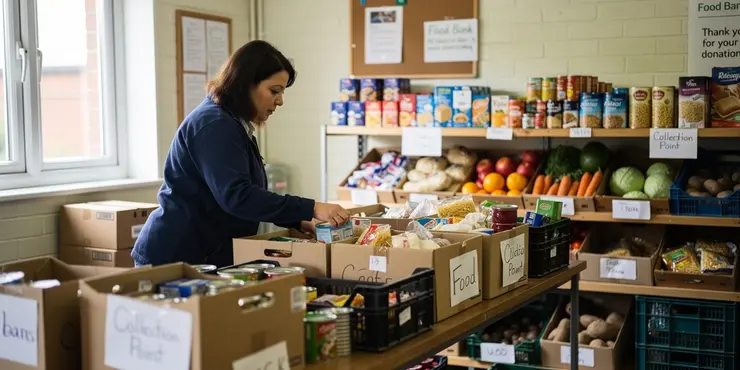
Are food banks open on weekends?
Relevance: 95%
-
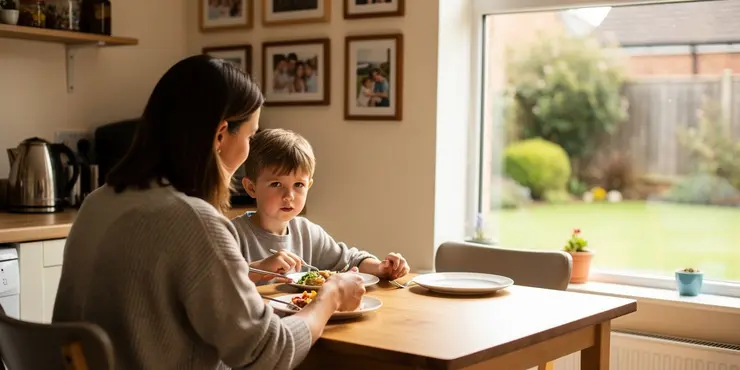
What is the difference between a food bank and a food pantry?
Relevance: 94%
-
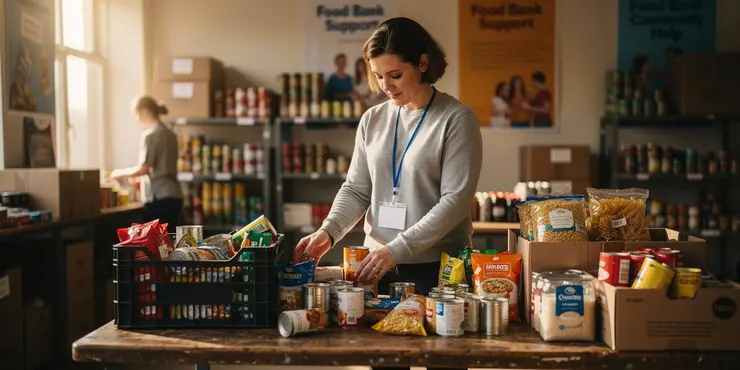
What types of food are typically available at a food bank?
Relevance: 94%
-
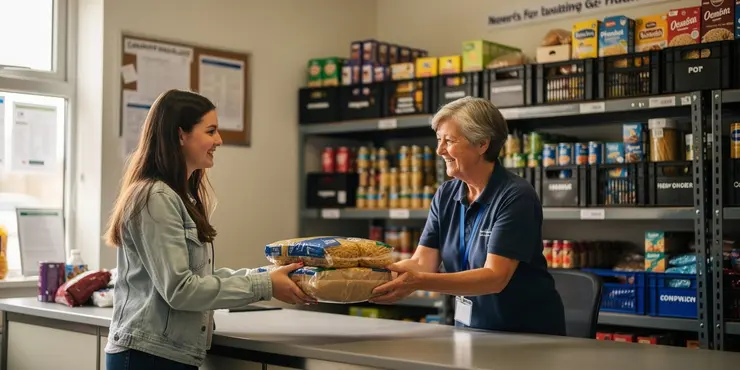
Can anyone use a food bank?
Relevance: 91%
-
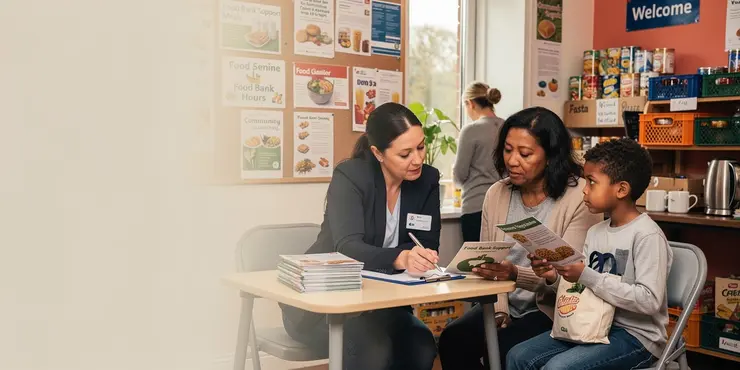
How can I access food banks?
Relevance: 91%
-
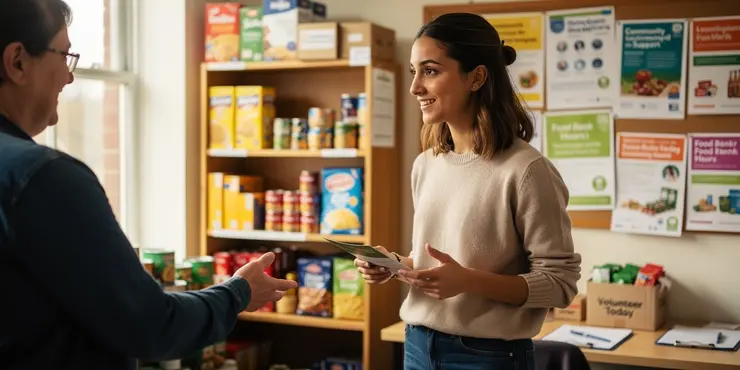
What if there is no food bank near me?
Relevance: 91%
-
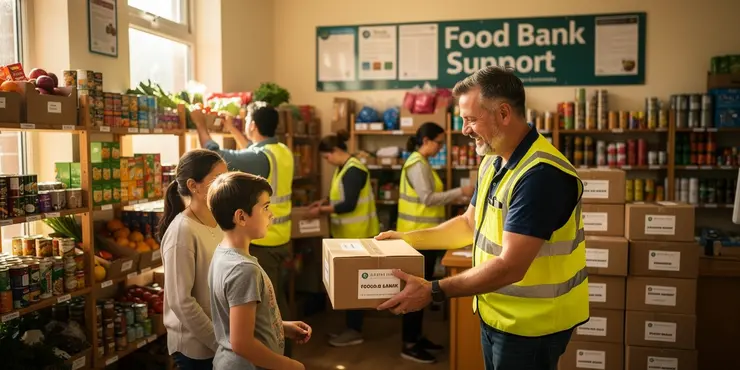
Is there a limit on how much food I can take from a food bank?
Relevance: 89%
-
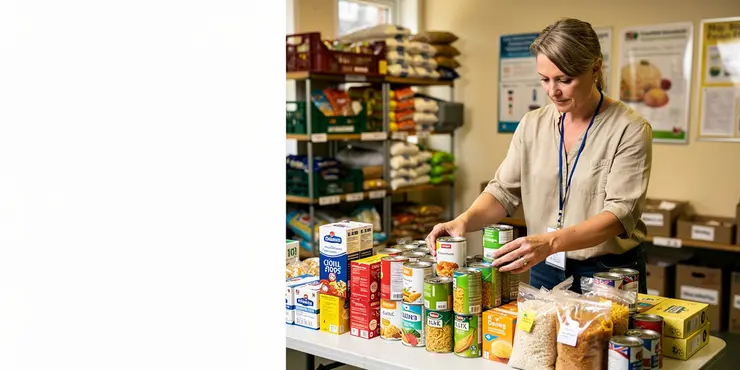
How can I support my local food bank?
Relevance: 87%
-
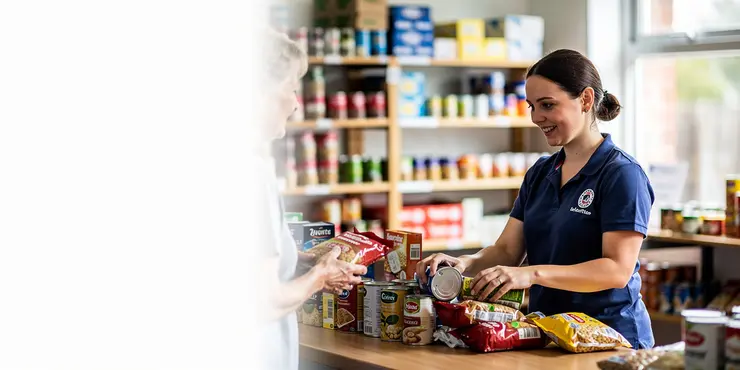
How often can I visit a food bank?
Relevance: 87%
-
Can refugees or immigrants access food banks?
Relevance: 87%
-
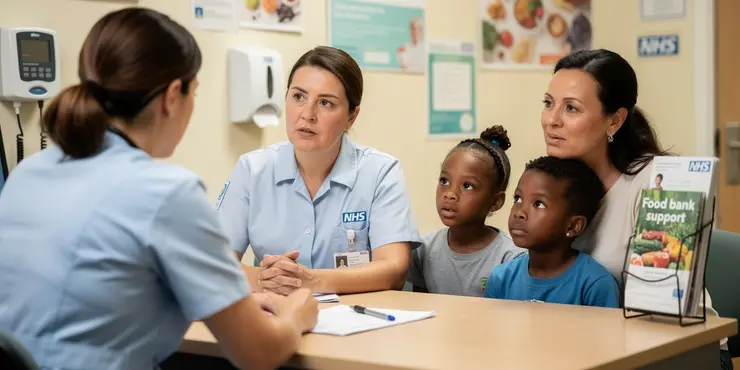
How can I find a food bank near me?
Relevance: 87%
-
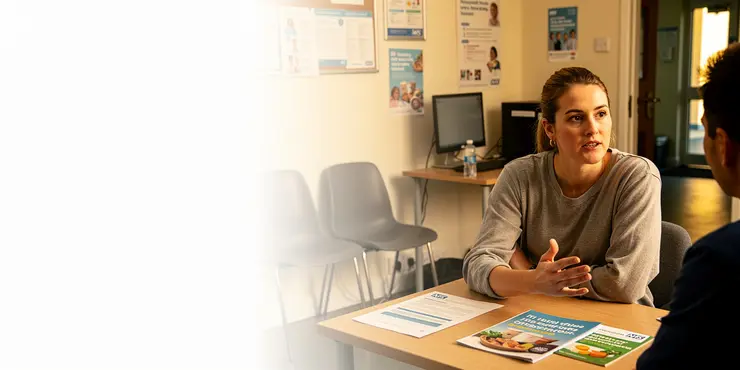
What information do I need to access a food bank?
Relevance: 87%
-
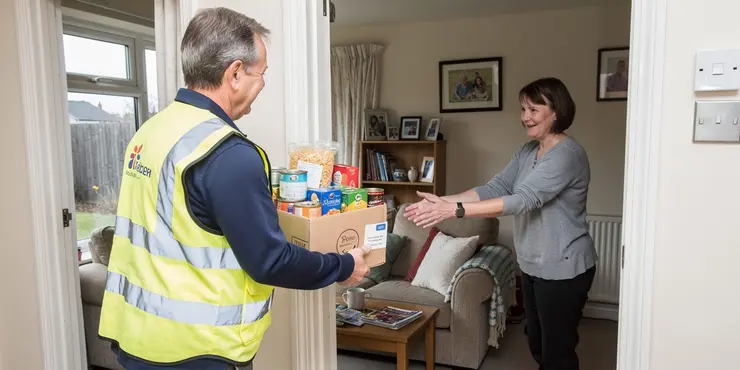
What if I can't physically visit a food bank?
Relevance: 86%
-
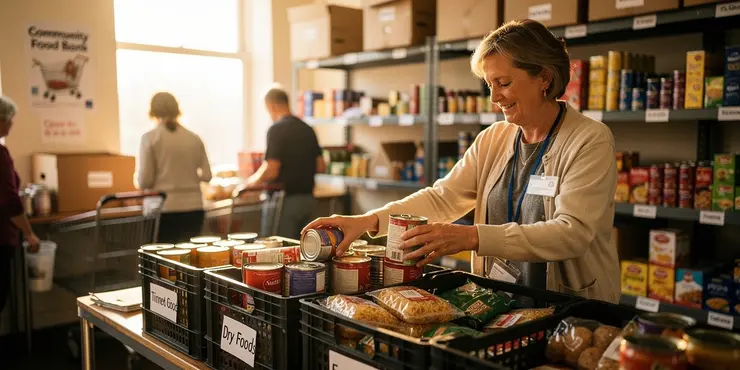
The Rise of Community Food Banks: Combating Hunger Locally
Relevance: 84%
-
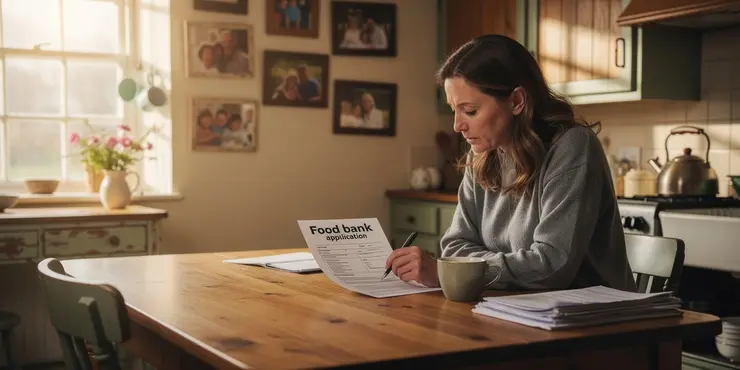
Do I have to provide personal information to access a food bank?
Relevance: 84%
-
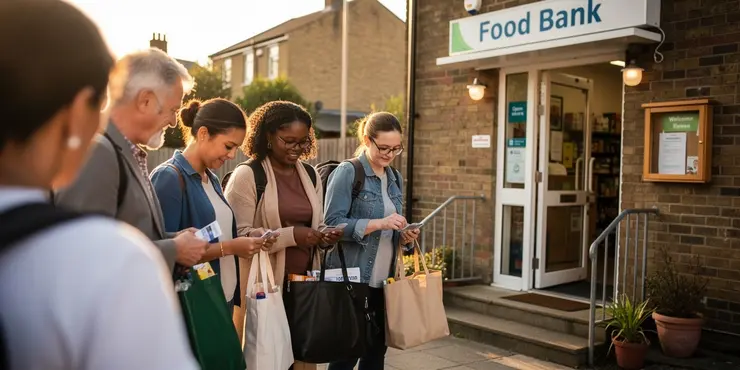
What should I bring with me when visiting a food bank?
Relevance: 84%
-
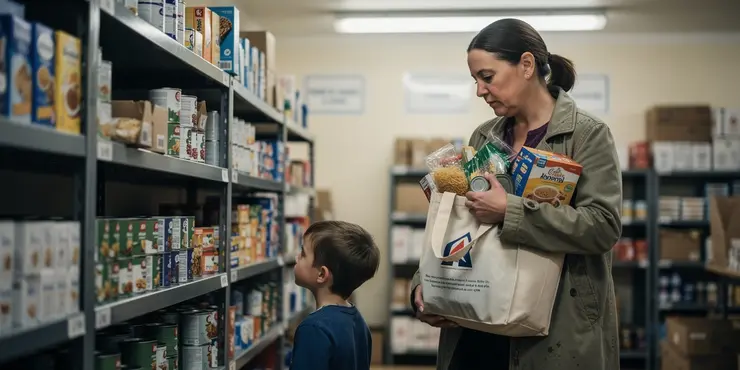
Rise in Food Bank Usage Amid Economic Challenges
Relevance: 84%
-
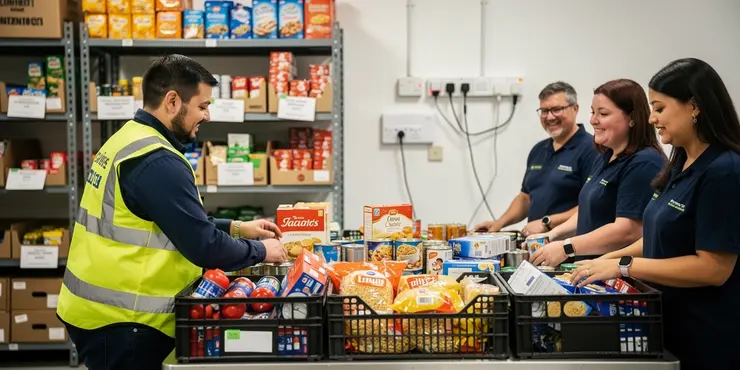
Can I volunteer at a food bank?
Relevance: 73%
-
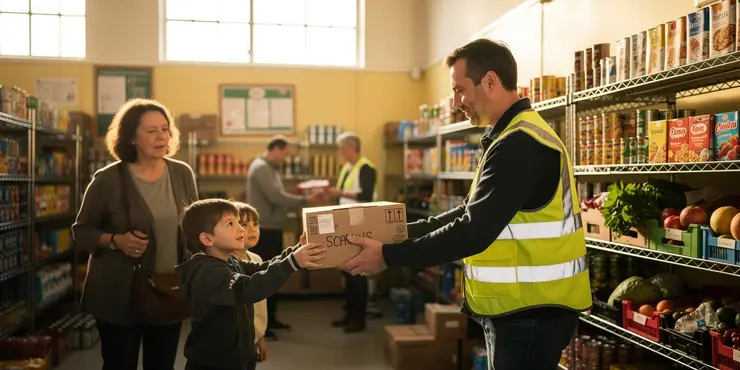
Do I need to make an appointment to visit a food bank?
Relevance: 66%
-
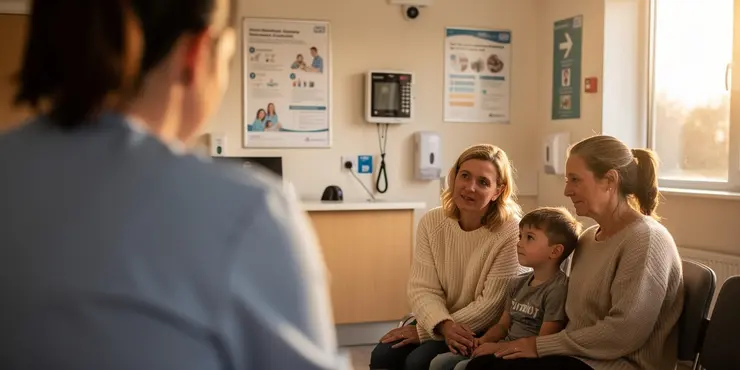
Charities Warn of Food Insecurity Amidst Rising Cost of Living
Relevance: 58%
-
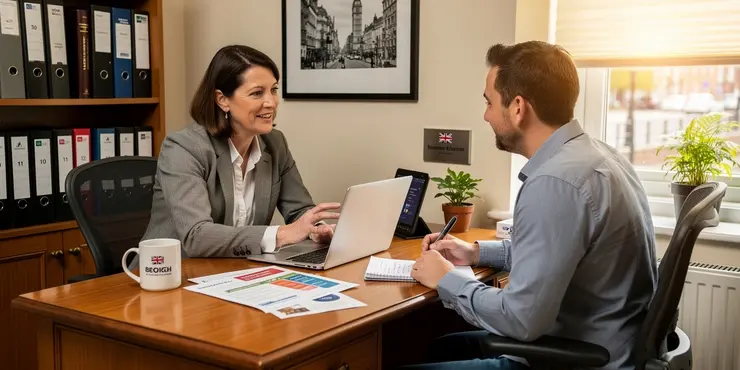
Are online banks cheaper than traditional banks?
Relevance: 54%
-
Are online banks cheaper than traditional banks?
Relevance: 54%
-
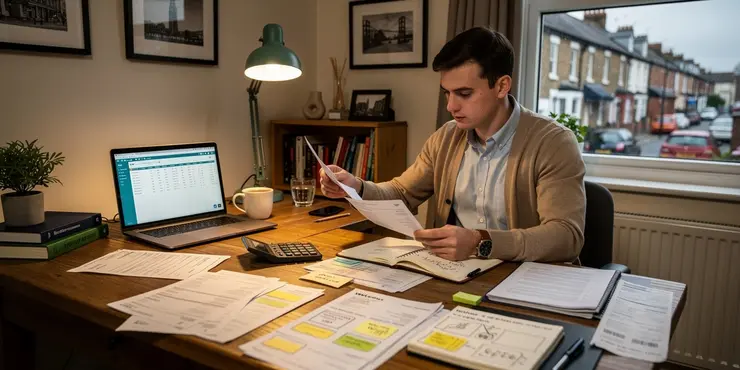
Are there benefits to having multiple bank accounts at different banks?
Relevance: 52%
-
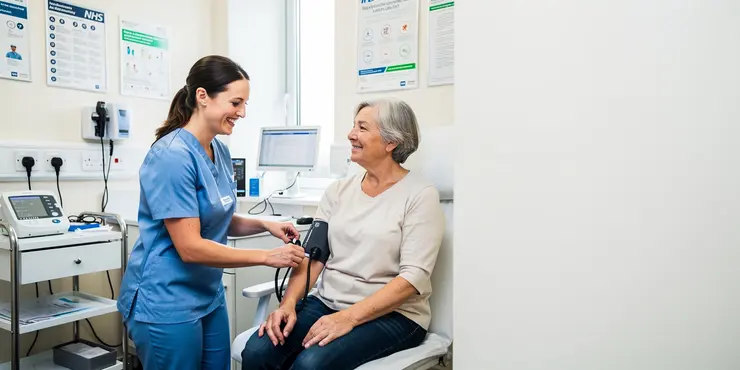
Is all fast food considered junk food?
Relevance: 52%
-
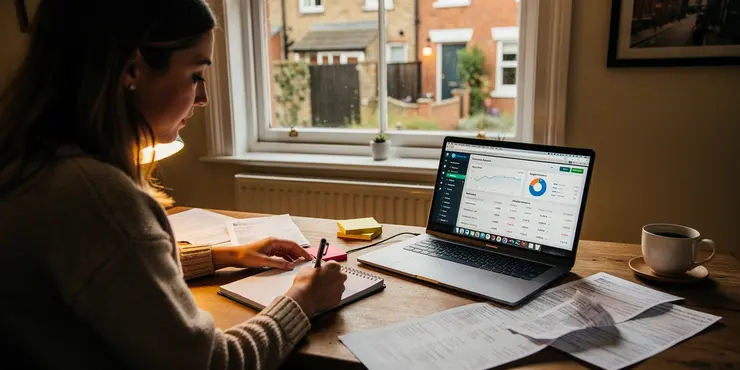
Are there benefits to having multiple bank accounts at different banks?
Relevance: 51%
-
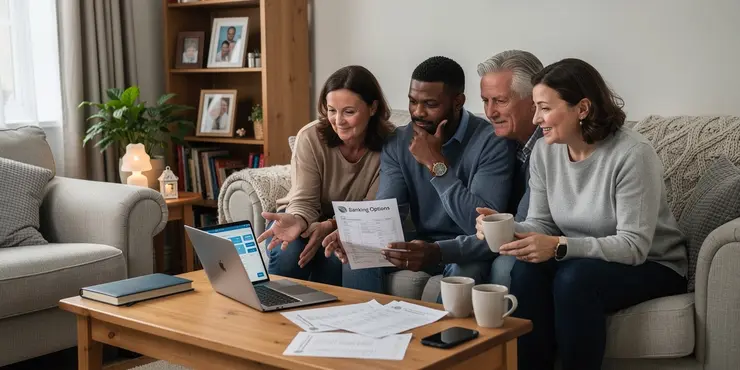
Do online banks have lower fees than traditional banks?
Relevance: 51%
-
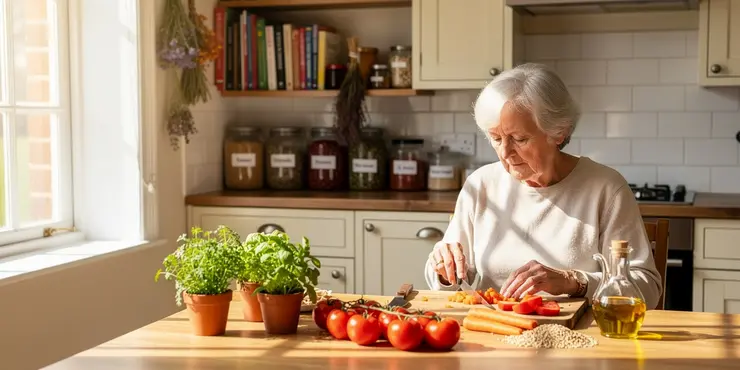
Are there any food assistance programs available for seniors?
Relevance: 50%
-
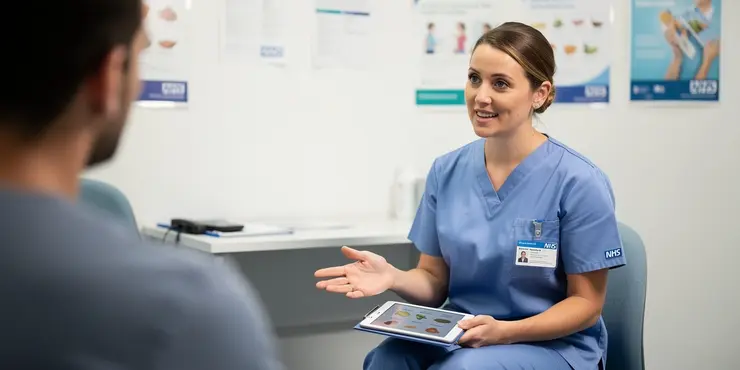
What is junk food?
Relevance: 49%
-
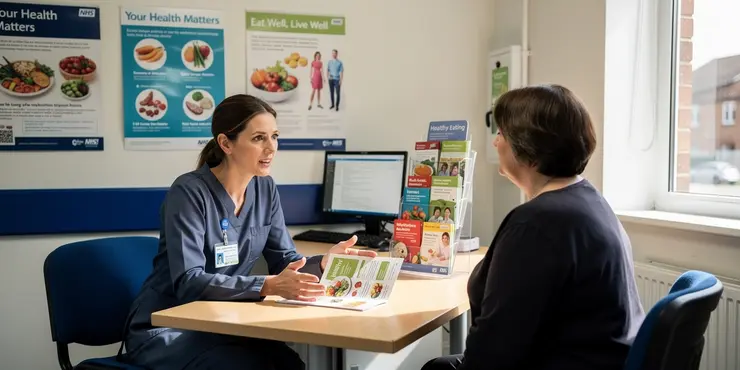
What is junk food?
Relevance: 49%
-
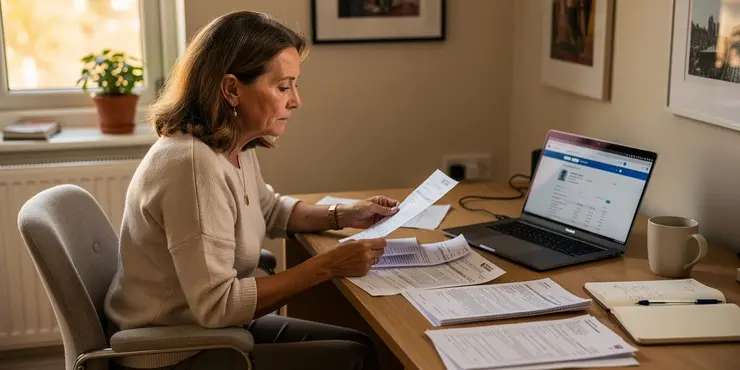
Can I save money by switching my bank?
Relevance: 47%
-
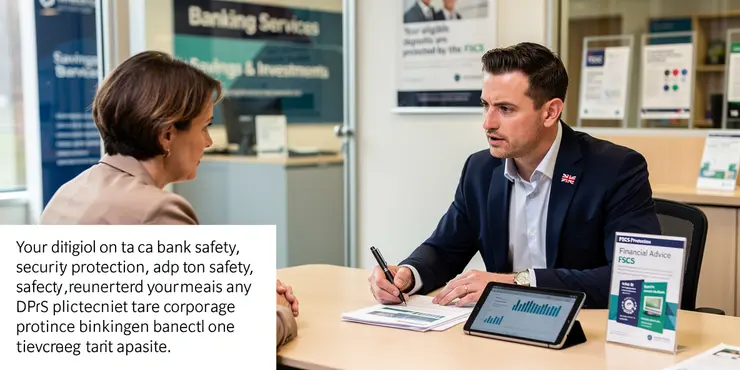
How do I know if a bank is insured and secure?
Relevance: 47%
-
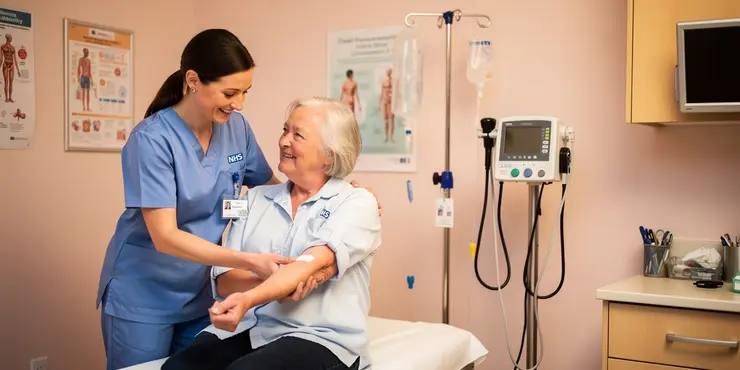
Do online banks offer investment options?
Relevance: 47%
-
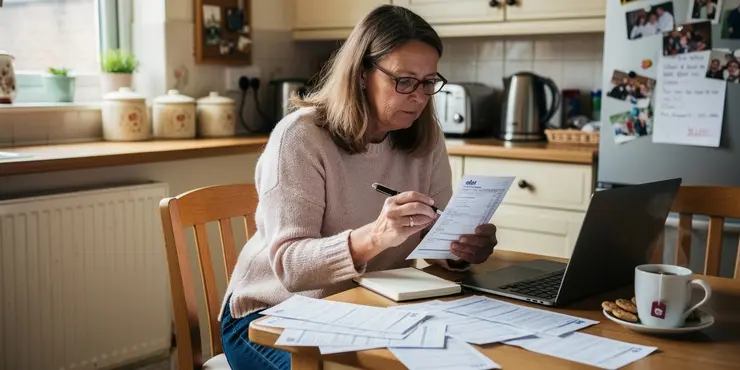
Can I save money by switching my bank?
Relevance: 47%
-
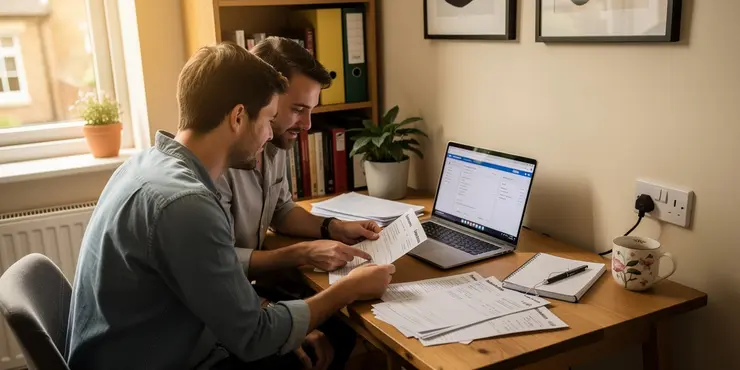
Are there any risks involved in switching banks?
Relevance: 47%
-
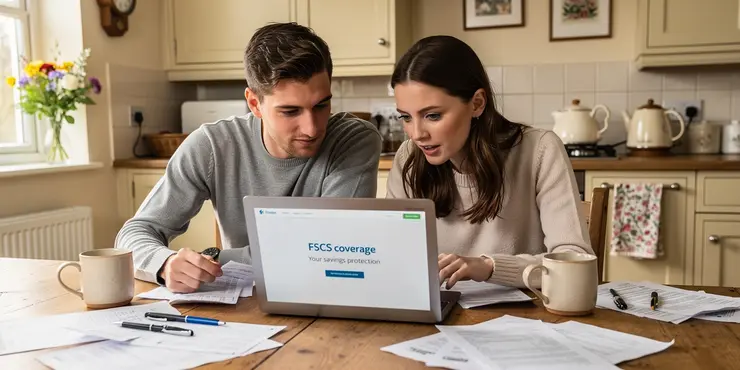
How do I know if a bank is insured and secure?
Relevance: 47%
-
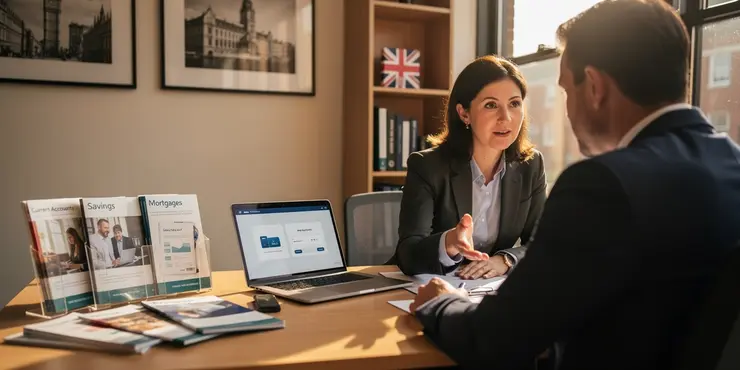
Can I save money by switching my bank?
Relevance: 47%
-
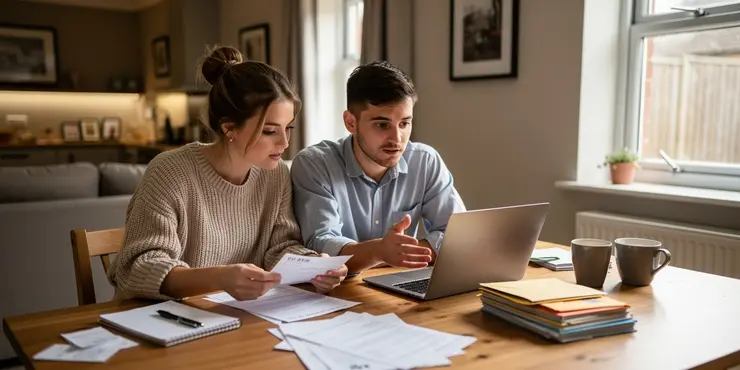
Is it worth switching banks for a sign-up bonus?
Relevance: 47%
Identification
When visiting a food bank in the UK, it's important to bring some form of identification. This could be a driver's license, passport, or a utility bill that matches your address. Identification is often required to verify your eligibility to receive assistance. Each food bank has its own guidelines, so it's a good idea to check in advance what specific form of ID they accept. This helps the food bank efficiently manage its resources and support the community effectively.
Referral Voucher
In the UK, many food banks require a referral from an organisation such as Citizens Advice, a local housing association, or a children's centre. This referral usually comes in the form of a voucher. Before visiting the food bank, it's essential to obtain this voucher as it serves as proof that you have been directed to the food bank service. The process can typically be completed by contacting a local organisation and explaining your situation to receive appropriate guidance and support.
Reusable Bags
Bringing your own reusable bags is highly recommended when visiting a food bank. Food banks often distribute groceries that can be bulky or vary in quantity, so having sturdy bags will make transporting them much easier. Reusable bags are also environmentally friendly and ensure you have a reliable way of carrying your items home. Plan on having more bags than you think you'll need to accommodate any additional items you may receive.
Proof of Needs
Sometimes, food banks may ask for proof of your current financial situation. This might include showing bank statements, pay slips, or a letter from the Department for Work and Pensions (DWP). Providing these documents, when asked, can help food banks tailor their support to your needs. If you’re unsure about what documents to bring, contacting the food bank beforehand can provide clarity and ensure that you have everything you need for your visit.
Personal Details
It’s useful to have a note of any dietary requirements or allergies you may have, as food banks aim to respect such needs while distributing food. They may have limited options, but knowing your restrictions in advance allows them to assist you better. Additionally, food banks strive to provide appropriate food parcels, so informing them of your preferences can result in a more tailored package that meets your household's needs.
Identification
When you go to a food bank in the UK, bring something to show who you are. You could take your driver's license, passport, or a bill with your address on it. This helps the food bank know you can use their service. Every food bank may ask for different things, so check with them first. This helps the food bank help everyone better.
Referral Voucher
Many food banks in the UK ask for a special ticket called a referral voucher. You can get this from places like Citizens Advice or a local housing group. The voucher shows you have been sent to the food bank. To get the voucher, talk to one of these groups and explain your situation. They will help you get the support you need.
Reusable Bags
Bring your own strong bags when you go to a food bank. Food banks give out food that might be big and heavy. Strong bags help you carry the food home. Using bags again is also good for the planet. Bring more bags than you think you'll need, just in case you get extra food.
Proof of Needs
Sometimes, food banks might ask how your money situation is. They may want to see bank papers or a letter from the DWP. These things help food banks give you the right support. If you don't know what to bring, ask the food bank before you go. This way, you will be ready for your visit.
Personal Details
Write down any foods you can't eat or are allergic to. Food banks try to respect what you can and can't eat. They might not have a lot of choices, but telling them what you need helps them give you the right food. They want to make sure you get a food package that works for you and your family.
Frequently Asked Questions
What type of identification should I bring to a food bank?
You should bring a government-issued photo ID, such as a driver's license or a passport.
Do I need proof of residence when visiting a food bank?
Yes, bringing proof of residence, like a utility bill or rental agreement, can be helpful.
Should I bring my own bags to a food bank?
It’s advisable to bring your own reusable bags to carry the food you receive.
Can I visit a food bank without any documentation?
Some food banks may allow visits without documentation, but it's best to check with them beforehand.
Is it necessary to schedule an appointment before visiting a food bank?
Some food banks require appointments, so check their policy in advance.
Do I need to bring my children’s ID to receive food for them?
It may be necessary to show ID for all household members, including children.
Is there an income verification process at a food bank?
Some food banks might require proof of income, but policies vary.
What should I wear when visiting a food bank?
Wear casual, comfortable clothing suitable for standing in line and carrying bags.
Should I bring payment or donations when visiting a food bank?
Food banks provide food at no cost, but monetary donations are often appreciated if you wish to contribute.
Is it possible to pick up food for someone else from a food bank?
You may be able to pick up food for another person if you have their ID and a written note of authorization.
Do I need to bring any paperwork for food allergies or dietary restrictions?
It's helpful to have documentation of dietary needs to ensure you receive appropriate food.
Can I bring a friend or family member with me to help carry food?
Yes, bringing someone else can be helpful, especially if you're receiving a large amount of food.
What if I don’t have any form of identification?
Contact the food bank directly, as they may have alternatives for those without ID.
Is it necessary to have a referral to use a food bank?
Some food banks require referrals, so verify this requirement prior to visiting.
Can I visit multiple food banks if needed?
You may visit multiple food banks, but each may have its own policy on how often you can receive assistance.
Should I bring any containers for perishable items when visiting a food bank?
Bringing a cooler or insulated bag can be useful for perishable food items.
What type of food will I receive from a food bank?
Food banks offer a variety of items such as canned goods, grains, vegetables, fruits, and proteins.
What are the operating hours of food banks?
Operating hours vary; check with your local food bank for specific hours.
Are there language services available at food banks?
Some food banks offer services in multiple languages; inquire prior to your visit.
What COVID-19 precautions should I expect at a food bank?
Many food banks have safety measures like mask requirements and social distancing in place.
What ID do I need to bring to a food bank?
When you go to a food bank, you need to bring a piece of paper or card that shows who you are. This is called an ID.
Here are some examples of ID you can bring:
- A driver's license
- A passport
- A school ID card
- Any other card or paper with your name and picture on it
If you don't have one of these, ask a helper at the food bank what you can do. They are there to help you.
You can also try using a note from someone who knows you, like a teacher or a friend, if you don't have ID.
Bring a picture ID card. This can be a driver's license or a passport. A driver's license and a passport are both official ID cards from the government.
Do I have to show where I live to get food from a food bank?
Yes, it is a good idea to bring something that shows where you live. You can bring a bill or a paper that says you rent your home.
Can I bring my own bags to a food bank?
It's a good idea to bring your own bags when you go to a food bank. This way, you have something to carry food home.
Not sure what kind of bag to bring? Use any bag you have at home, like a backpack or a plastic bag.
If you need help, talk to someone at the food bank. They can give you tips and help you figure out what to do.
Bring your own bags to take the food home. You can use them again later.
Can I go to a food bank without bringing papers?
Yes, you can visit a food bank. You might not need to show any papers. If you have questions, ask someone there. They are there to help you.
Some places where you can get free food might let you visit without any paperwork. It's a good idea to call them first to make sure.
Do you need to make an appointment before going to a food bank?
Some food banks want you to make an appointment to visit. Call the food bank first to ask if you need an appointment. This will help you know what to do. If you need help, you can ask a friend or family member to call the food bank for you.
Some food banks need you to make an appointment. Check first to see what they need you to do.
Do I have to show my kids' ID to get food for them?
You might need your kids' ID to get food for them. Check with the food place to be sure.
If you find reading hard, you can ask someone to help you or use a tool that reads the text out loud. Online dictionaries might also be helpful to understand words better.
You might need to show ID for everyone in your home, even kids.
Do you need to show your income at a food bank?
Some food banks might ask you to show how much money you make, but the rules are different at each place.
What clothes should I wear to a food bank?
Here are some simple tips:
- Wear comfy clothes and shoes.
- Try to dress in layers. You can add or remove a layer if you feel too hot or cold.
- If it's raining, bring a waterproof jacket.
- A hat can keep you warm in cold weather.
Ask someone you trust if you're unsure about what to wear. You can also find videos or pictures online for more ideas.
Wear clothes that are comfy. You should be able to stand in line and carry bags easily when wearing them.
When I go to a food bank, should I take money or food to give?
When you visit a food bank, you can help by bringing some food to give. You don’t need to bring money, but some people like to give money to help the food bank. You can do what feels right for you.
If you are not sure, you can ask the food bank what they need most. Sometimes they need food, and sometimes they need money.
Remember, your help is important and will make a difference.
If you need help reading this, you can ask someone to read it with you or use tools like a text reader on your phone or computer.
Food banks give food for free. You don't have to pay. But if you want to help, you can give money. This is nice and helps a lot.
Can I get food for someone else at a food bank?
Yes, you can help by picking up food for a friend or family member. Here are some tips:
- Check what the food bank needs you to bring, like an ID or a note from the person you're helping.
- Ask if the food bank has special rules about picking up food for others.
- You might need to tell the food bank the name of the person you're helping.
If you need help, you can ask someone to go with you. Some places also have online tools or guides to make this easier.
You might be able to get food for someone else if you have their ID and a note saying you can do it.
Do I need to bring papers if I can’t eat some foods?
If you can't eat some foods, you might need to bring a note from your doctor or a list of what you can't eat. It can help if you tell people what foods make you sick or what foods you need.
You can also use an app or card that says what foods you can have or not. This can make it easy to let others know about your needs.
Having a note about what you can and can't eat helps make sure you get the right food.
Can I bring someone to help carry food?
Is it okay to bring a friend or family member to help you carry food? Simple tools like checklists or reminder cards can help keep track of what you need to carry.
Yes, bringing a friend can help, especially if you have lots of food to carry.
What if I don't have any ID?
Talk to the food bank. They might help if you do not have ID.
Do you need a note to use a food bank?
Some food banks need a note from someone to say you can go. Check if you need this note before you visit.
Can I go to more than one food bank if I need to?
Yes, you can visit different food banks if you need more help.
If you have trouble getting to food banks, ask someone to help you find them.
You can go to different food banks, but each one has its own rules about how often you can get help.
Do I need to bring boxes or bags for food that can spoil when I go to a food bank?
It is a good idea to bring your own bag or box. This will help you carry food like fruits, vegetables, or milk. It also helps keep them from getting squished or spilled.
Remember, some food banks might already give you bags or boxes, but bringing your own is always helpful just in case.
Bring a cooler or a special bag to keep your food cold and fresh.
What food do I get from a food bank?
When you go to a food bank, you will get food that is good for you. This includes:
- Bread, rice, or pasta
- Tins of beans, soup, or vegetables
- Milk or juice in cartons
- Cereal
- Some fruit
Sometimes, the food bank might give you special treats or extras.
If you have questions, ask someone who works at the food bank. They can help you.
Food banks give people food like canned food, grains, veggies, fruits, and meat.
When are food banks open?
Food banks are open at different times. Ask your nearest food bank when they are open.
Can food banks help if I speak another language?
Food banks are places where you can get free food if you need help. If you talk in a different language, some food banks can help you understand. They might have people who speak your language. You can ask them for help if you need it.
If you need more help, you can bring someone with you who speaks your language. That person can help you understand the words.
Some food banks can help you in different languages. Ask them before you go.
What safety steps for COVID-19 will I see at a food bank?
When you go to a food bank, they do things to keep people safe from COVID-19. Here are some things you might see:
- Wear a Mask: People might wear masks over their nose and mouth.
- Hand Sanitizer: You can use hand sanitizer to keep your hands clean.
- Stay Apart: People might stand a little distance away from each other.
- Clean Places: They might clean surfaces a lot to keep germs away.
If reading is hard for you, you can ask someone to help you. Bringing someone along who can explain things can be a good idea.
Many food banks have rules to keep people safe. You might need to wear a mask and stay apart from others.
Useful Links
This website offers general information and is not a substitute for professional advice.
Always seek guidance from qualified professionals.
If you have any medical concerns or need urgent help, contact a healthcare professional or emergency services immediately.
Some of this content was generated with AI assistance. We’ve done our best to keep it accurate, helpful, and human-friendly.
- Ergsy carfully checks the information in the videos we provide here.
- Videos shown by Youtube after a video has completed, have NOT been reviewed by ERGSY.
- To view, click the arrow in centre of video.
- Most of the videos you find here will have subtitles and/or closed captions available.
- You may need to turn these on, and choose your preferred language.
- Go to the video you'd like to watch.
- If closed captions (CC) are available, settings will be visible on the bottom right of the video player.
- To turn on Captions, click settings .
- To turn off Captions, click settings again.
More Items From Ergsy search
-

How do food banks get their food?
Relevance: 100%
-

What is a food bank?
Relevance: 100%
-

Is there a cost to receive food from a food bank?
Relevance: 97%
-

Are food banks open on weekends?
Relevance: 95%
-

What is the difference between a food bank and a food pantry?
Relevance: 94%
-

What types of food are typically available at a food bank?
Relevance: 94%
-

Can anyone use a food bank?
Relevance: 91%
-

How can I access food banks?
Relevance: 91%
-

What if there is no food bank near me?
Relevance: 91%
-

Is there a limit on how much food I can take from a food bank?
Relevance: 89%
-

How can I support my local food bank?
Relevance: 87%
-

How often can I visit a food bank?
Relevance: 87%
-
Can refugees or immigrants access food banks?
Relevance: 87%
-

How can I find a food bank near me?
Relevance: 87%
-

What information do I need to access a food bank?
Relevance: 87%
-

What if I can't physically visit a food bank?
Relevance: 86%
-

The Rise of Community Food Banks: Combating Hunger Locally
Relevance: 84%
-

Do I have to provide personal information to access a food bank?
Relevance: 84%
-

What should I bring with me when visiting a food bank?
Relevance: 84%
-

Rise in Food Bank Usage Amid Economic Challenges
Relevance: 84%
-

Can I volunteer at a food bank?
Relevance: 73%
-

Do I need to make an appointment to visit a food bank?
Relevance: 66%
-

Charities Warn of Food Insecurity Amidst Rising Cost of Living
Relevance: 58%
-

Are online banks cheaper than traditional banks?
Relevance: 54%
-
Are online banks cheaper than traditional banks?
Relevance: 54%
-

Are there benefits to having multiple bank accounts at different banks?
Relevance: 52%
-

Is all fast food considered junk food?
Relevance: 52%
-

Are there benefits to having multiple bank accounts at different banks?
Relevance: 51%
-

Do online banks have lower fees than traditional banks?
Relevance: 51%
-

Are there any food assistance programs available for seniors?
Relevance: 50%
-

What is junk food?
Relevance: 49%
-

What is junk food?
Relevance: 49%
-

Can I save money by switching my bank?
Relevance: 47%
-

How do I know if a bank is insured and secure?
Relevance: 47%
-

Do online banks offer investment options?
Relevance: 47%
-

Can I save money by switching my bank?
Relevance: 47%
-

Are there any risks involved in switching banks?
Relevance: 47%
-

How do I know if a bank is insured and secure?
Relevance: 47%
-

Can I save money by switching my bank?
Relevance: 47%
-

Is it worth switching banks for a sign-up bonus?
Relevance: 47%


